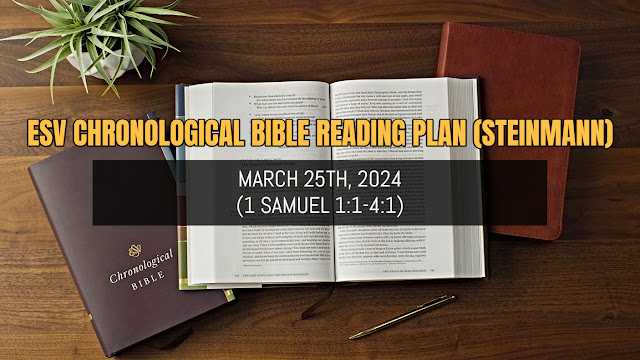LOOK | WHAT DOES IT SAY?
THINK | WHAT DOES IT MEAN?
Worrying signs for Saul, in the details. The commentators Fix and Vannoy, having taken some time to go through the text more slowly, see a number of worrying signs about Saul's character right from the start. Their comments are worth posting here at length:
Despite Saul’s dashing good looks, his character comes into question as the story unfolds in both subtle and not-so-subtle ways. In the Ancient Near East, good kings were likened to shepherds (e.g. Hammurabi’s prologue), which is how we’ll meet David—keeping his father’s sheep (16:11). Furthermore, Israelite kings were forbidden from amassing horses (Hebrew susim; Deut 17:16). Though somewhat ambiguously, Saul’s character comes into question, as he not only comes from a family who is amassing donkeys (ʾatonot), but he also seems to be failing to “keep” them well. In fact, there may be a subtle indication that Saul is “lying about,” as his father has to go to him and tell him to “get up, go look for the donkeys” (1Sam 9:3), a job he doesn’t trust him to do alone (“take one of the young men with you”). It is not clear where Saul and his servant traverse, but it seems that they did not go too far before Saul was ready to give up out of “concern” for his father’s worry about him (9:5). It is no surprise that his servant knows of Samuel’s residence at Ramah (3:20; 7:15–17), but the fact that he has to inform Saul may further imply Saul’s lack of spiritual life, especially given Samuel’s “renown” (from Hebrew kbd) in Israel (9:6). Saul’s lack of ability to lead is further highlighted in his inability to problem-solve their situation, as he needed to be told of Samuel and then slowly persuaded to go to him by Kish’s nameless servant who even offers to pay for Samuel’s help with his own money (9:6–10)... Though some see Saul’s humble disclaimer (9:21) as genuine, in context it appears to be false humility given his good pedigree introduced in the opening of the narrative (9:1–2), and this may be confirmed by his not protesting his royal treatment at the feast (9:22–24). However he got to bed, Saul’s willingness to lay about sleeping seems to be highlighted by the need for Samuel to call up to Saul on the roof, and like Saul’s father in 9:3 he has to tell him to “get up” (9:26).8 As we meet Saul here in chapter 9, his characterization sets forth a stark contrast with the coming “king after the Lord’s heart” in David (13:14), who will better foreshadow the true Shepherd King of Israel, Jesus Christ.
Still, even with these things being true, Saul starts off well. He scores a major military victory and gives credit to the Lord, and he seems to be genuinely humble as he is still working his field after being selected as king. He is merciful towards those who insult him. He inspires his people. What we see is a figure who appears to be a genuinely good king... except Saul continues to have significant character issues which repeatedly pop up. In his own leadership he fears the people and does not fulfill his responsibilities to the Lord; and in his relationship with David we will later find him to be a mad king, wild with growing jealousy.
How many of us have significant character issues that, if they had the opportunity to be expressed, would be as damaging or more damaging than Saul's? Imagine you had to write an autobiography of The Rise and Fall of (Insert Your Name Here). What part of your story, currently, would make sense as the beginning root of that fall? These would be important things to begin to deal with now. Saul did not become a bad king overnight; he merely had some character flaws that finally had a chance to be expressed.
DO | HOW DO WE RESPOND?
How can we respond in our worship, attitude, and actions? IN OUR ACTIONS we can ask a few trusted people, known for their honesty and bluntness, to give us their feedback about troubling issues that they see with our character. Things that may not be a problem now, but that you need to watch out for. Rather than becoming defensive, write those bits of feedback down. Then ask a second person. Then a third. Start with any common areas of concern and then work from there. You might be glad, when you have larger responsibilities or a bigger platform, that you did this kind of work now.
PRAY | HOW DOES THIS BRING US TO GOD?
Whether in response to anything pointed out here, or to something else in your Bible reading time, take a few moments before you close up your Bible to pray in response to God. If you need a format for prayer, both the ACTS, CALL, and PRAY methods are helpful ways to stay consistent.
-Sean
-Sean
















